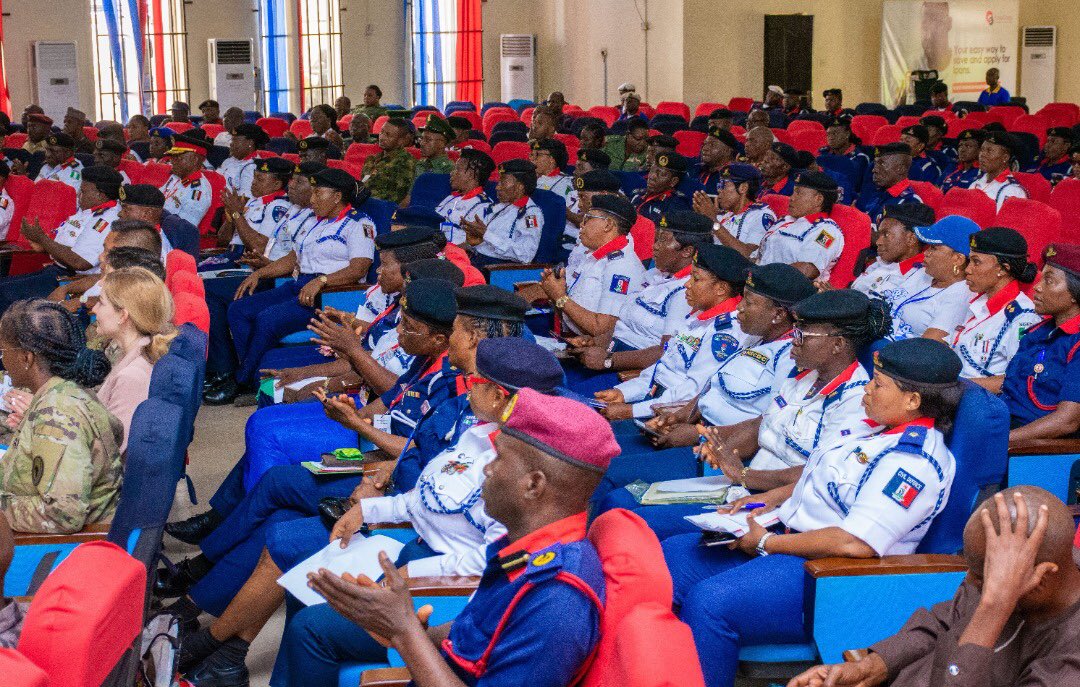Editorial
Upscaling National Asset Protection

The Office of the National Security Adviser (ONSA) and the Nigeria Security and Civil Defence Corps (NSCDC) convened a meeting to reinforce the policy for safeguarding Critical National Assets and Infrastructure (CNAI) within Nigeria.
The validation exercise involved key collaborators who examined the draft Critical National Assets and Infrastructure National Protection Policy and Strategy (CNAI-NPPS 2023). Speaking after the meeting, the chief host and Minister of Interior, Rauf Aregbesola, maintained that security stakeholders must ensure appropriate safeguard of Nigeria’s critical assets and infrastructure.
According to the Minister, the terminology, CNAI was vast and varied, and as such, stakeholders should deliberate on its policies. He affirmed that it was judicious to enhance the roles security agencies and collaborators played in securing the CNAI hence, the need to know how to implement strategies regulating CNAI safety.
Similarly, the National Security Adviser, Babagana Monguno, lamented about the torrent of attacks on critical governmental assets across the six geopolitical zones of the country. This is even as the Commandant-General of the NSCDC, Ahmed Audi, acknowledged that the country had lost an estimated $200 billion to threats to strategic assets since 1999.
Indeed, the discoveries emitting from the CNAI meeting should be of immeasurable concern to the authorities and all Nigerians. Given the situation, there is a need to explore the role security agencies and stakeholders can play in securing the CNAI. It is essential to know what plans security operatives have in their effort to implement strategies guiding the CNAI security.
This is because the economic losses engendered by CNAI vulnerabilities are unquantifiable in monetary terms. The loss is attributed to terrorism, insurgency, banditry, militancy, vandalism, the End-SARS protest, the COVID-19 pandemic, among others. This is happening in a country with an appraised infrastructure shortfall of over $3 trillion. While Nigeria strives to traverse this gap, threats to CNAI take the nation one step forward and several steps backwards.
Nigeria’s crucial assets have come under sustained attacks in virtually every part of the country. In the North West, bandits and terrorist groups target transport infrastructure and educational institutions. They replicate this in the North East and North Central. The presence of these groups, specifically near the Kainji and Shiroro dams, somewhat imperils the region.
In the South East, attacks on infrastructure such as police stations, and security checkpoints are presumed to be carried out by members of the Eastern Security Network. In the South West, spectacular threats to critical national assets and infrastructure have emerged from armed robberies targeted at banks and financial institutions. In addition, there has been wanton annihilation of national infrastructure following public turbulence.
Militant activities stimulate attacks on resources and infrastructure in the South-South, including pipeline vandalism and oil fraud. Piracy poses yet another challenge in the Nigerian coastal territory, which straddles the zone. The menace virtually undermined the aquatic transport supply line as shipping premium insurance increased in response to piracy considerations. It is rather bolstering that the Nigerian Navy and other maritime partners have considerably hampered the hazard.
National assets are precious because, as we know, the survival and preservation of every nation and the quality of life of its citizens depend on the functionality of its critical national assets and infrastructure. Accordingly, any attack on these assets and base will alter national security. The Federal Government must supply funds for intelligence gathering equipment and gunboats for the Civil Defence Corps and other security agencies.
Contemporary concerns for public assets’ security became more prominent in the aftermath of the 9/11 terrorist attack on the United States of America. Since that appalling assault, the United States and many other countries have taken the necessary steps to identify critical national assets and infrastructure. They have designed appropriate policies and strategies to protect them. Nigeria cannot be an exception.
United Nations Security Council Resolution 2341 places a premium on countries to prioritise strategic national assets and infrastructure. The Federal Government has to live up to this task by equipping the Nigeria Civil Defence Corps for efficient and limited physical security operations. The citizenry’s cooperation in assisting the formation in the fight against these atrocities is fundamental.
The government must take measures towards promoting the skills and competency of the NSCDC personnel by collaborating with relevant stakeholders, sister agencies, and pertinent government establishments. They must partner with international organisations to assist in training and efficiency development of the personnel, particularly in surveillance and intelligence gathering to upscale their competence and proactiveness.
Civil Defence and security personnel should implement a sequence of prompt measures to curtail the impudence and boldness exhibited by criminal elements in their illegal activities. It is imperative that they meticulously assess the nation’s public infrastructure and take action where deemed necessary to combat such abhorrent acts.
Editorial
AFCON ’25: Bravo, Super Eagles, But…

Editorial
Fubara: Celebrating A Leader At 51

Editorial
Beyond Accessing Bonny By Road


